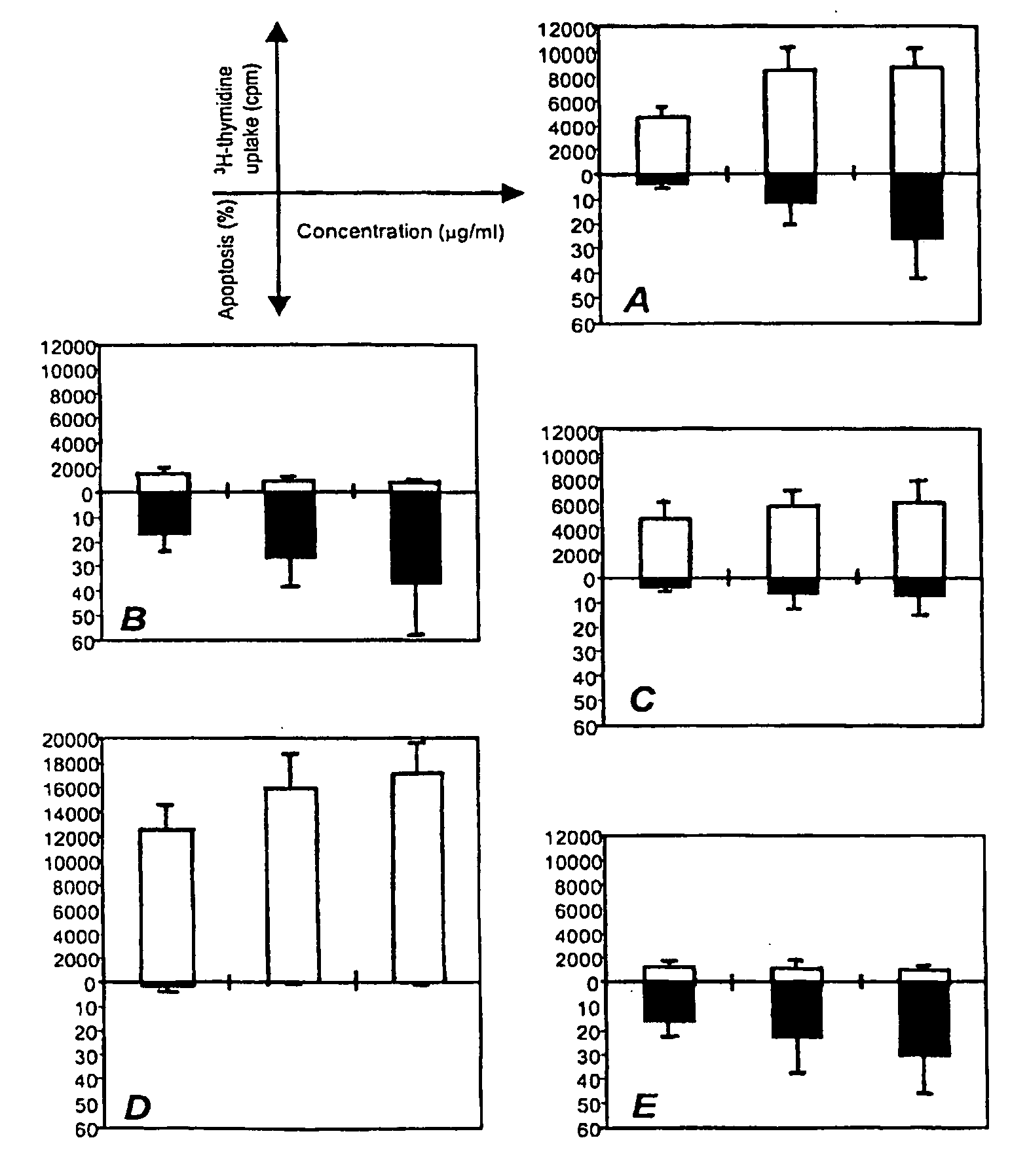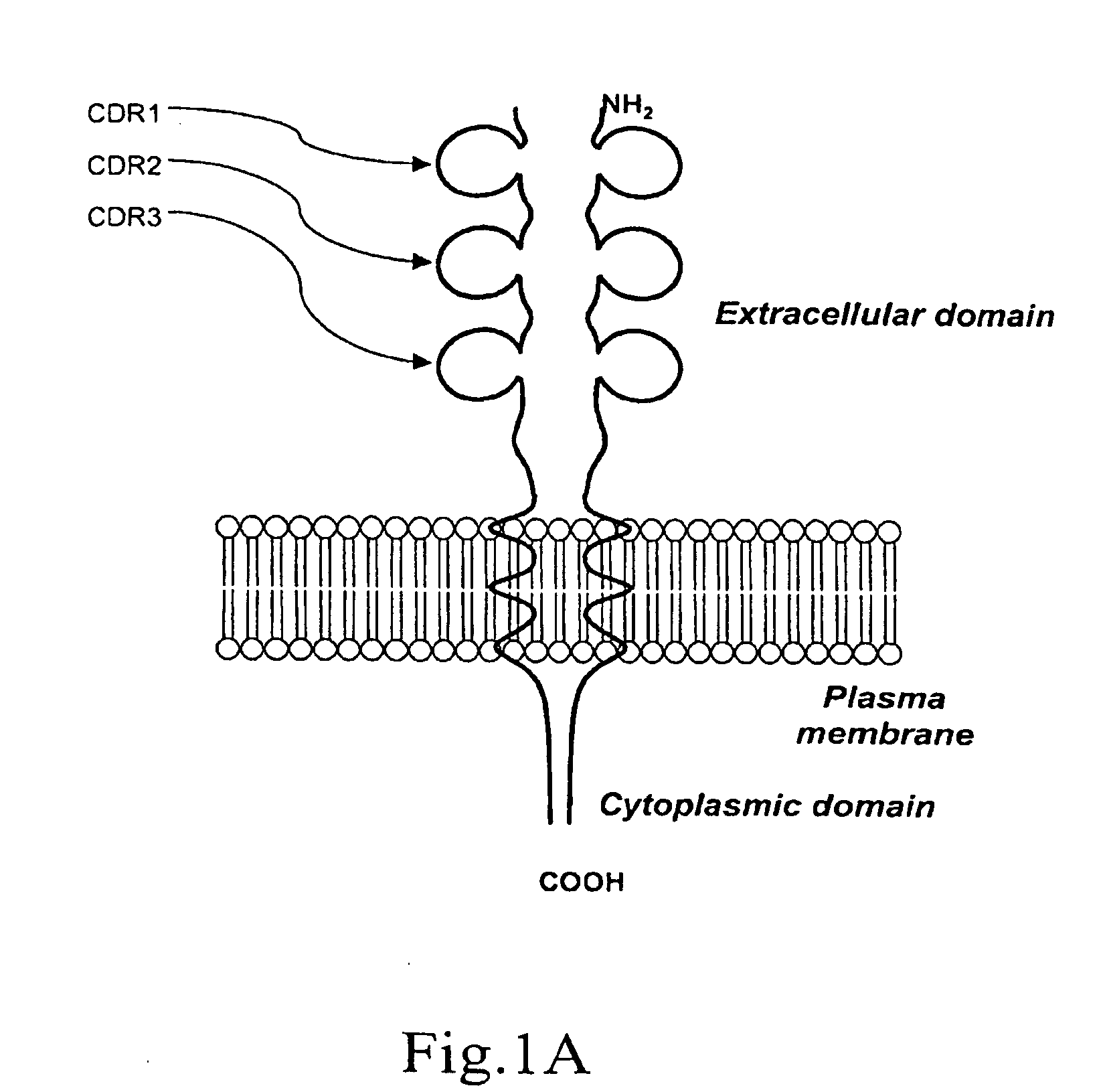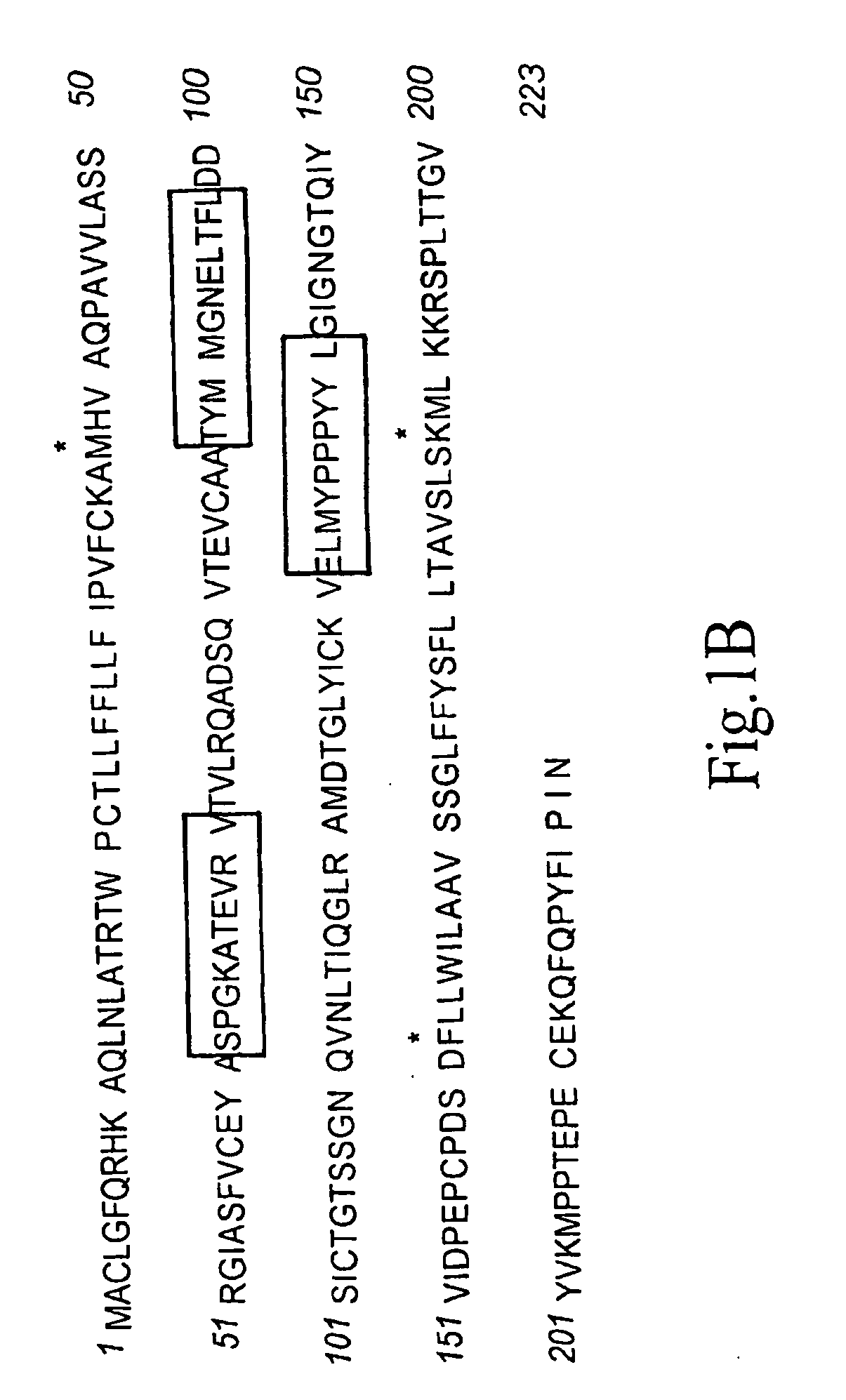Method for producing human antibodies with properties of agonist, antagonist, or inverse agonist
a human antibody and antagonistic technology, applied in the field of human antibody production, can solve the problems of limited clinical application usefulness of humabs acting only as antagonistic blocking agents, and is not readily adaptable to more physiologic problems, and achieve the effect of simple and effectiv
- Summary
- Abstract
- Description
- Claims
- Application Information
AI Technical Summary
Benefits of technology
Problems solved by technology
Method used
Image
Examples
example 1
Preparation of Peptide Antigens
[0073]The overall structure of human CD152 protein receptor is represented schematically by FIG. 1A. Amino acid sequence corresponding to human CD152 is shown in FIG. 1B. By incorporating information gained from scientific literatures, the importance of the interrelationships between the CDR3 region and natural CD80 and CD86 ligands has been established. Further evidence suggests that residues locating in the CDR1 region play some role in interaction with CD80 / CD86. However, the nature of CDR2 in agonist binding has not yet been fully investigated.
[0074]To raise an antibody that can bind native protein, the peptide should also adopt a conformation that mimics its shape when contained within the protein. Therefore, complete sequences derived from the respective CDR1, CDR2 and CDR3 regions are preserved for designing synthetic immunogens. Furthermore, extensions were made to each CDR peptide to comply the combined epitope model as previously described (C...
example 2
Generation of Anti-CD152 Human Antibodies
[0076]Buffy coats from healthy blood donors, screened negative for HIV-1 / 2, HTLV-I / II, HCV, HBsAg and containing normal levels of alanine transferase (ALT), were obtained from the Tainan Blood Center, Chinese Blood Services Foundation (Tainan, Taiwan). Peripheral blood mononuclear cells (PBMC) were isolated by density centrifugation (400×g) on FICOLL-PAQUE™ (Amersham Biosciences AB, Uppsala, Sweden). The cells were then washed twice in PBS and collected by 100×g centrifugation.
[0077]The obtained PBMC were first magnetically labeled with CD45RO MACS™ microbeads (Miltenyi Biotec, Auburn Calif.) then separated by using a VarioMACS™ (Miltenyi Biotec) instrument. Briefly, the cells were specifically labeled with super-paramagnetic MACS™ microbeads. After magnetic labeling, the cells were passed through a separation column, which was placed in a strong permanent magnet. The magnetizable column matrix served to create a high-gradient magnetic field....
example 3
Anti-CD 152 Antibodies Varied in Their Ability to Induce Apoptosis and Proliferation as Compared with Native Agonist
[0084]The binding sites of different anti-CD152 human antibodies were confirmed by corresponding synthetic peptides on primary alkyl amine derivatized cellulose membranes (Rapp Polymere GmbH, Tübingen, Germany). To further investigate the pharmacologic effect of different anti-CD152 antibodies and the preferred native agonist, CD80, on cellular growth of human peripheral lymphocytes stimulated in vitro by phytohemagglutinin (PHA), cultures of PBMC were established. Briefly, flat-bottomed 96-well microtitre plates were prepared by adding 50 μl of cell suspension (105 cells), 60 μl of medium containing PHA (final concentrations in culture 1.25 μg / ml, Amersham Biosciences AB), 40 μl of autologous plasma and 50 μl of RPMI-1640 medium containing anti-CD152 antibodies or monomeric human CD80-muIg fusion protein (Ancell) at concentrations ranging from 0.2 to 5 μg / ml. For CD80...
PUM
 Login to View More
Login to View More Abstract
Description
Claims
Application Information
 Login to View More
Login to View More - R&D
- Intellectual Property
- Life Sciences
- Materials
- Tech Scout
- Unparalleled Data Quality
- Higher Quality Content
- 60% Fewer Hallucinations
Browse by: Latest US Patents, China's latest patents, Technical Efficacy Thesaurus, Application Domain, Technology Topic, Popular Technical Reports.
© 2025 PatSnap. All rights reserved.Legal|Privacy policy|Modern Slavery Act Transparency Statement|Sitemap|About US| Contact US: help@patsnap.com



